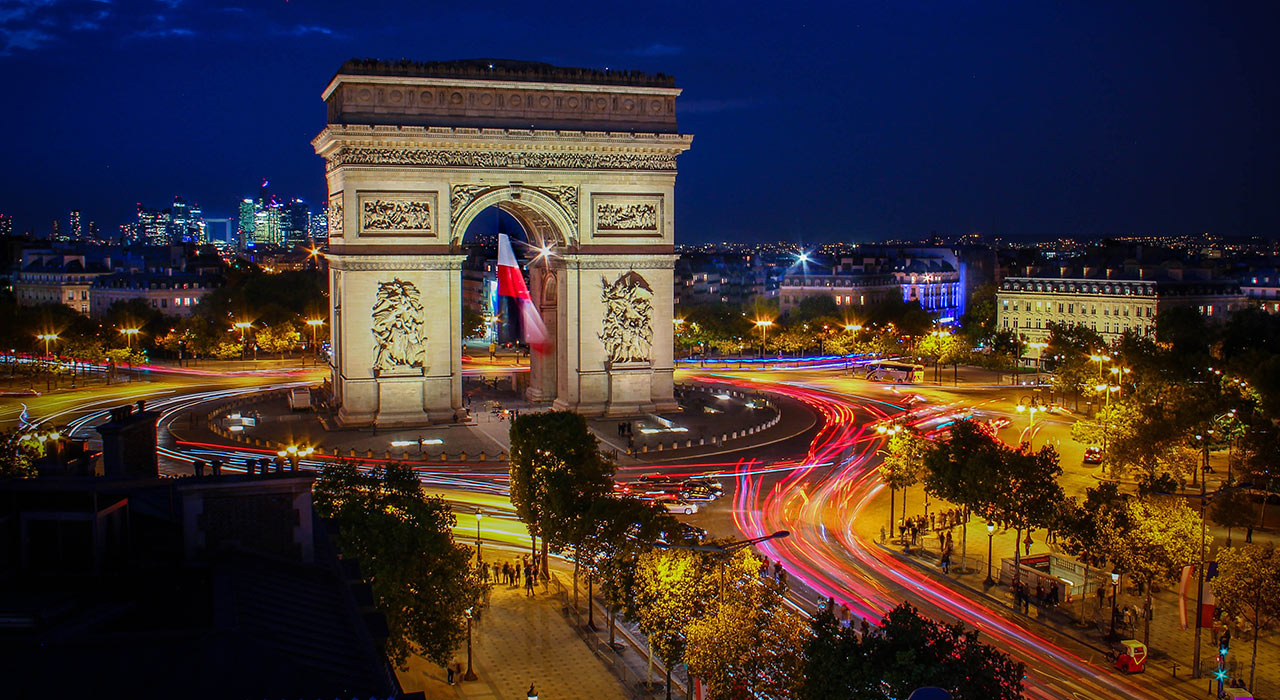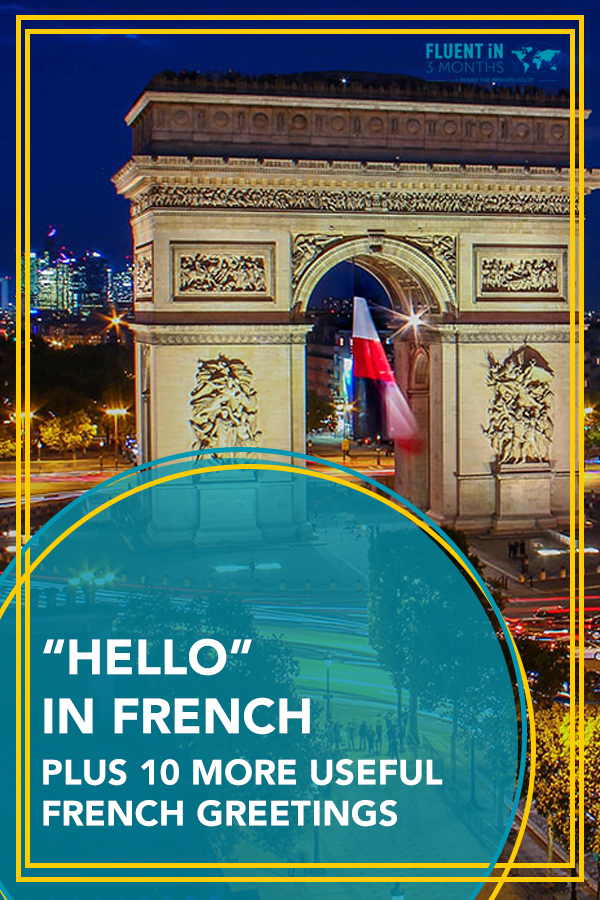“Hello” in French – Plus 10 More Useful French Greetings
Bonjour! There are many ways to say “hello” in French – French greetings can be much more than a simple “hello”.
In this article I'll teach you the French for “hello” and its variations, and give you a brief tour of the most common ways to greet a French person.
1. Bonjour – “Good day”
If you ask your teacher “how do you say hello in French?”, they'll almost certainly reply with bonjour. It literally means “good day”, and it's by far the most well-known French greeting.
The nice thing about bonjour is that it's the most safe and polite of all greetings in French. You can use it in any situation, no matter what the level of formality. After all, who doesn't like being wished a “good day”?
2. Bonsoir – “Good evening”
Like bonjour, bonsoir is safe and polite. The only thing that matters is the time of day – it means “good evening”, so only use it at the appropriate hour!
3. Salut! – “Hi!”
Another extremely common greeting, salut is bonjour's younger, laid-back cousin. You can say it to your friends and family in informal situations. You probably wouldn't say it to your boss.
Salut can mean “bye” as well as “hello”. It’s a common way to end a phone call with someone you know well.
4. Ça va? – “How’s it going?”
Ça va? is hard to translate literally. The best approximation would be something like “does it go?”
It's an extremely common way of saying “how are you?” or “how's it going?”. You can also say comment ça va?, which doesn't really change the meaning.
So to say “hello, how are you?” in French, simply say bonjour, ça va? or salut, ça va?
If someone says this to you, you can respond with ça va bien (“it's going well”) or tout va bien (“everything's going well”). In Quebec, you’ll often hear “not bad” as the response: pas pire, which literally means “no worse”.
Or maybe that wouldn't be honest. If things are a bit iffy, you could respond with “comme-ci, comme-ça”. This literally translates to “like this, like that”, and it means something like “so-so” or “not bad, not great”.
Note that, in French, “how are you?” and its variants always use the verb aller (to go), not être (to be).
5. Quoi de neuf? – “What’s new?”
Quoi de neuf? literally means “what's new?”. It's like saying “what's up?” in English, and is about as informal.
You can also say quoi de beau? – “what's beautiful?”, which is basically the same as saying quoi de neuf?
Fun fact: in the French version of Looney Tunes, Bugs Bunny says “quoi de neuf, docteur” instead of “what's up, doc?”.
6. Coucou – “Hey!”
If you want to know how to say hello in French, you should know about coucou. It literally means “cuckoo”, as in the bird, but you can use it as a greeting or to get someone's attention, like saying “hey!” in English.
Coucou is more commonly used by or to children; it would be considered a bit strange for an adult to say it, especially in a formal situation. Adults might use it, however, in text speak.
7. Allô? – “Hello?”
Quick: how do you spell “hello” in French? I'm not talking about the spelling of bonjour or salut. I literally mean the English word “hello”. Years ago, it crossed the English channel and settled in France, where it's spelled phonetically as allô.
Unlike “hello”, the only time a French person says allô is when they're on the phone. It's usually said in a rising tone like a question – allô? – when you're not sure if the other person is there (e.g. if you think the connection may have been dropped).
(Side note: In Quebec, many people answer the phone with oui bonjour? (literally, “yes good day?”). It sounds a bit strange at first, but it’s not impolite, it’s just different.)
8. Excusez-moi? – “Excuse me”
Excuse me? Excusez-moi is the polite way in French to get someone's attention. Note that it uses the vous form of the verb, ending in -ez, because that makes it more polite.
You can also get someone's attention with s'il vous-plait – “please”.
9. Enchanté(e) – “Pleased to meet you”
After you greet someone in French with bonjour or salut and you both make your introductions, you can say enchanté(e), which means “pleased to meet you”.
The literal translation of this word is “delighted” or “enchanted”, you're saying that you're delighted to meet this person.
If you're male, say enchanté. If you're female, say enchantée. Although it doesn't matter if you forget – both words are pronounced the same!
10. Faire la bise
One final and common way to greet someone in French is to faire la bise. This isn't something you say, it's something that you do! Bise means “kiss”, and faire la bise means to kiss someone on the cheek or cheeks – a common greeting in France as well as many other countries.
The exact customs around cheek-kissing vary from region to region. In some places it's only common between two women, or between a woman and a man. In other places, two male acquaintances might faire la bise too.
There are also variations in how many kisses to give. In some places you only kiss the other person on one cheek; in others you go for both cheeks, or maybe kiss them three or even four times!
If you're not sure, this map shows the results of a survey on cheek-kissing across France, with the results broken down by department (similar to a county). Which just goes to show that you can find absolutely anything on the Internet.




Social